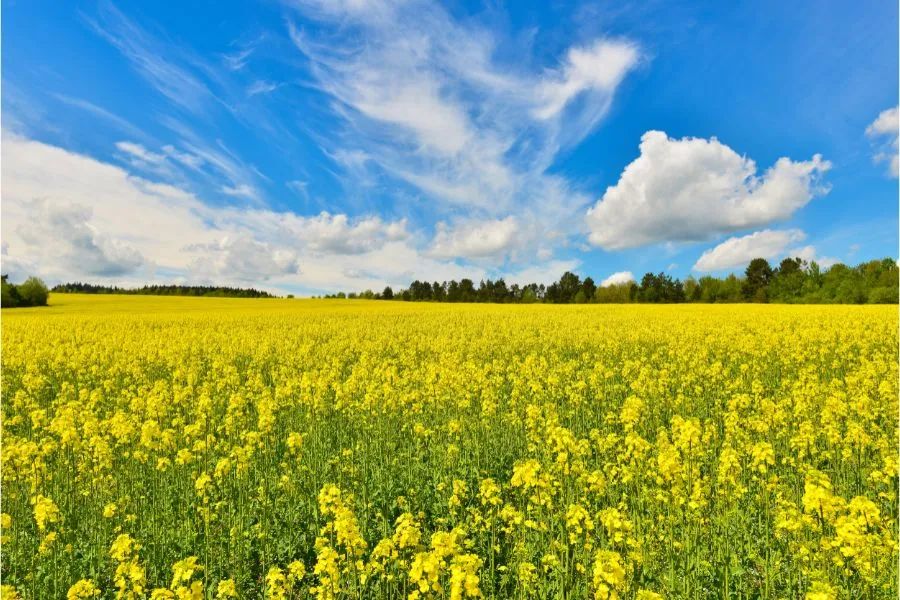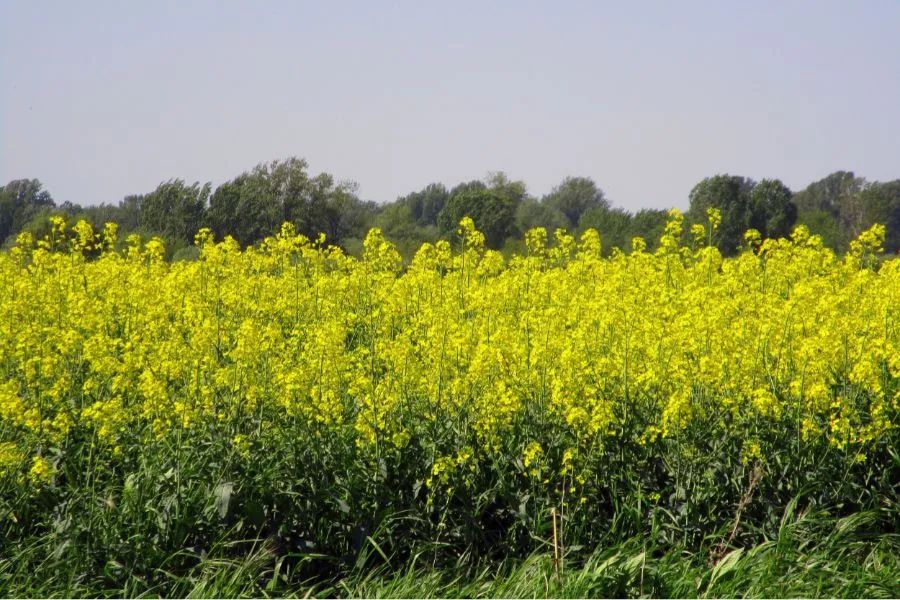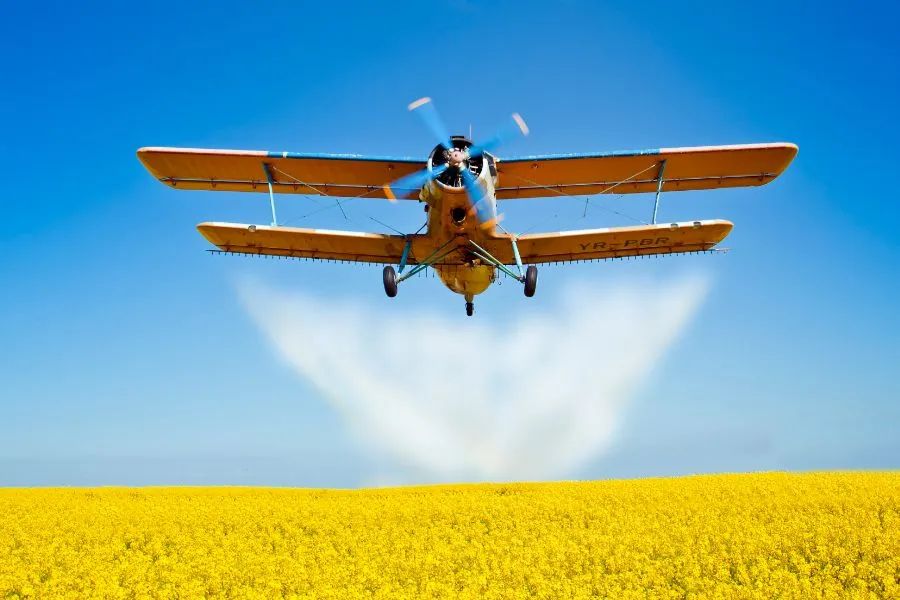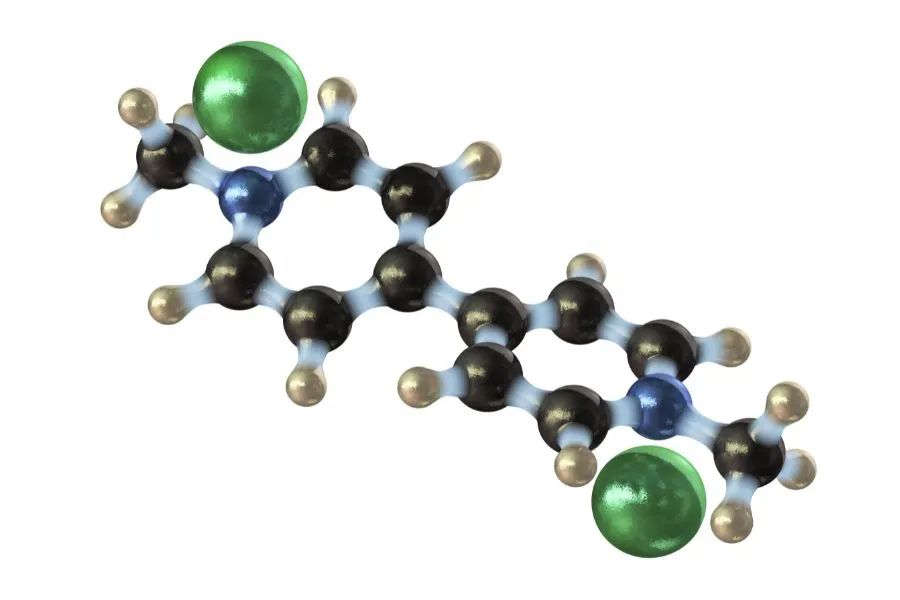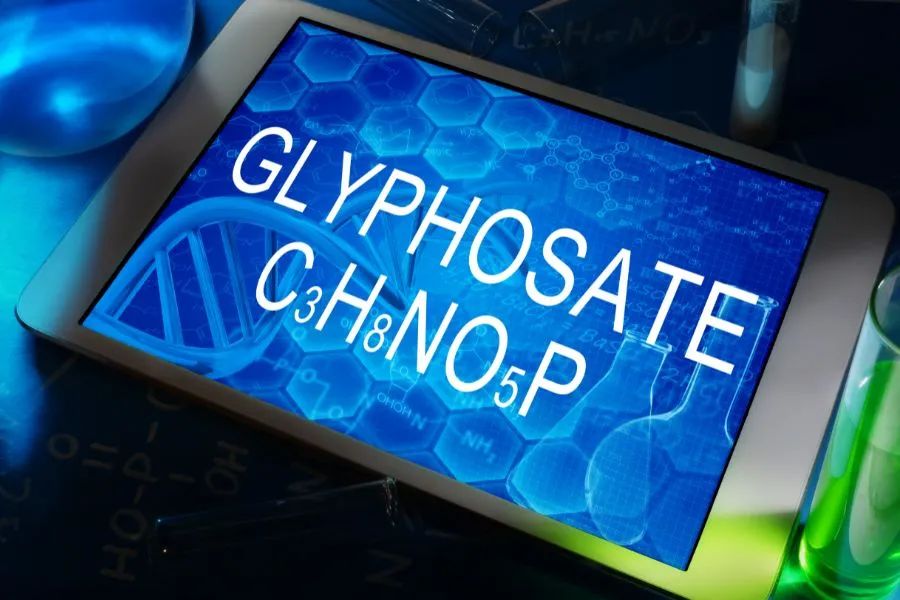杂草危害可使我国油菜籽产量下降15.8%以上,严重的田块减产幅度可达50%。培育抗除草剂油菜新品种是增加油菜产量、实现油菜规模化种植的重要举措。
Weed damage can reduce my country's rapeseed yield by more than 15.8%, and the yield reduction in severe fields can reach 50%. Breeding new herbicide-resistant rapeseed varieties is an important measure to increase rapeseed yields and achieve large-scale cultivation of rapeseed.
油菜是中国重要的食用油料作物,种植面积广。但油菜一生中遭遇的逆境是多种多样的,在油菜籽从播种到田间收获的整个生命周期中,其生长环境中都会出现大量的杂草。杂草与油菜籽在有限的生长空间内争夺阳光、养分和水分等资源。杂草还容易携带病原菌和害虫,增加了油菜籽感染病虫害的可能性,严重影响油菜籽的产量和品质。
Rapeseed is an important edible oil crop in China with a wide planting area. In the whole life cycle of rapeseed from sowing to harvesting in the field, there will be a large number of weeds in its growing environment. Weeds compete with rapeseed for resources such as sunlight, nutrients and water within limited growing space. Weeds are also easy to carry pathogens and pests, which increases the possibility of rapeseed infection, seriously affecting the yield and quality of rapeseed.
相关调查研究表明,长江流域冬季油菜地杂草面积占油菜种植总面积的50%以上。青海等地区的春菜田草害较为严重,而云南的冬菜田面积较大,但草害面积占总种植面积的比例大于60%。草害造成油菜籽产量下降15.8%~50%,油菜籽产量损失显著。
The related investigation showed that the weedy area of rapeseed fields in winter accounted for more than 50% of the total area of rapeseed planting in the Yangtze River basin. In Qinghai and other areas, the grass damage was more serious in spring vegetable fields, while in Yunnan, the area of winter vegetable fields was larger, but the grass damage area accounted for more than 60% of the total planted area. Rapeseed yield decreased by 15.8% ~ 50% due to grass damage, and rapeseed yield loss was significant.
目前,除人工除草外,最主要的田间除草方法是利用除草剂进行化学防除。在中国农作物耕地中,除了几种单子叶杂草危害严重外,双子叶杂草是造成草害的主要类型。喷洒在油菜田上的除草剂主要用于杀死单子叶杂草。然而,作为双子叶作物,在油菜田上喷洒除草剂以控制双子叶杂草会对油菜造成损害,因此在油菜田施用除草剂的效果并不理想。此外,随着除草剂的广泛使用,抗除草剂杂草不断出现,这促使科学家研究不同类型除草剂的作用机制,分析抗除草剂基因的分子机制,筛选和培育抗除草剂的油菜品种。
At present, in addition to manual weeding, the most important method of field weeding is chemical control with herbicides. In China, dicotyledonous weeds are the main type of grass damage, except for some monocotyledonous weeds. Herbicides sprayed on rape fields are mainly used to kill monocotyledon weeds. However, as a dicotyledonous crop, spraying herbicides on oilseed rape fields to control dicotyledonous weeds can cause damage to oilseed rape, so the effect of applying herbicides on oilseed rape fields is not ideal. In addition, with the widespread use of herbicides, herbicide-resistant weeds continue to appear, which has prompted scientists to study the mechanism of action of different types of herbicides, analyze the molecular mechanism of herbicide-resistant genes, and screen and breed herbicide-resistant rape varieties.
近几十年来,由于欧美发达国家的法律允许转基因植物(作物)的种植和销售,国外抗除草剂油菜品种的研究取得了很大进展。从1996年转基因作物商业化到2006年,最重要的转基因作物都与除草剂抗性有关。例如,2006年,全球转基因作物总种植面积达到1.02×108hm。这些年来,在全球种植的抗除草剂转基因油菜品种超过11个,其中包括比利时植物遗传系统公司(PGS)申请在欧洲销售的抗草铵膦的油菜品‘MS1×RF1’、‘MS1×RF2’和‘MS8×RF3’;孟山都公司研发的油菜品种‘GT73/RT73’、‘GT200’和‘ZSR500’、‘ZSR501’和‘ZSR502’,均转入了草甘膦抗性基因 CP4 EPSPS和抗草甘膦氧化还原酶基因gox;AgrEvo公司申请的抗草铵膦油菜品种‘HCN92=Topas19/2’、‘HCN10’和‘HCN28=T45’,均转入了草铵膦抗性基因pat;拜耳公司应用的抗除草剂油菜品种‘OXY235’已转入拜耳公司应用的抗除草剂辛基溴苯腈水解酶基因bxn基因,以及抗除草剂油菜品种‘PHY14PHY35’。这些转基因抗除草剂油菜籽品种主要种植在欧美发达国家,其中孟山都公司的GT73抗除草剂品种和拜耳公司自2002年起的6个抗除草剂品种(MS1)(RF1、MS1×RF2、MS8×RF3、OXY235、Topas19/2、T45)通过了中国安全评价,并于2004年3月获得加工原料进口许可证。但目前只有农大抗油菜籽品种GT73/RT73和抗草甘膦油菜籽杂交品种MS8×RF3已实现商业化,并在全球范围内种植。
In recent decades, due to the laws of developed countries in Europe and America allowing the cultivation and sale of transgenic plants (crops), great progress has been made in the research of herbicide resistant rapeseed varieties abroad. From the commercialization of GM crops in 1996 until 2006, the most significant GM crops were associated with herbicide resistance. For example, in 2006, the total planted area of GM crops in the world reached 1.02×108hm. Over the years, more than 11 transgenic varieties of herbicide-resistant rapeseed have been planted worldwide, including phosphate-resistant rapeseed 'MS1×RF1', 'MS1×RF2' and 'MS8×RF3', which were applied by Belgian Plant Genetic Systems (PGS) for sale in Europe. The rapeseed varieties' GT73/RT73 ', 'GT200' and 'ZSR500', 'ZSR501' and 'ZSR502' developed by Monsanto Company were converted into glyphosate resistance gene CP4 EPSPS and glyphosate resistance oxidoredotase gene gox; AgrEvo applied for phosphate-resistant rapeseed varieties' HCN92=Topas19/2 ', 'HCN10' and 'HCN28=T45', all of which were transferred into the Phosphate-resistant gene pat; The herbicide-resistant rapeseed variety 'OXY235' used by Bayer has been transferred to the bxn gene of the herbicide-resistant octylbromobenzonitrile hydrolase gene and the herbicide-resistant rapeseed variety 'PHY14PHY35' used by Bayer. These genetically modified herbicide-resistant rapeseed varieties are mainly planted in developed countries in Europe and the United States, Among them, Monsanto's GT73 herbicide resistant variety and Bayer's six herbicide resistant varieties (MS1) since 2002 (RF1, MS1 × RF2, MS8 × RF3, OXY235, Topas19/2, T45) have passed the safety evaluation in China. In March 2004, the company obtained the import license for processing raw materials. However, only the NONGTU rapeseed resistant variety GT73/RT73 and the glyphosate-resistant rapeseed hybrid MS8 × RF3 have been commercialized and grown worldwide.
目前,虽然中国还不允许转基因油菜的商业化种植,但油菜的遗传转化技术在中国已经比较成熟,且近几十年来转基因和非转基因抗除草剂油菜研究取得了很大进展,已获得和推广了一些非转基因抗除草剂油菜新品种。
At present, although commercial cultivation of transgenic rapeseed is not allowed in China, the genetic transformation technology of rapeseed has been relatively mature in China, and great progress has been made in the research of transgenic and non-transgenic herbicide-resistant rapeseed in recent decades, and some non-transgenic resistance has been obtained and promoted new varieties of rapeseed with herbicide.
1、农杆菌介导抗除草剂基因bar和抗虫基因cry1ab/ac转化甘蓝型油菜的研究
2、抗草甘膦转基因油菜品种RG1和RG2的抗性测定
3、我国抗草甘膦基因的发掘现状


